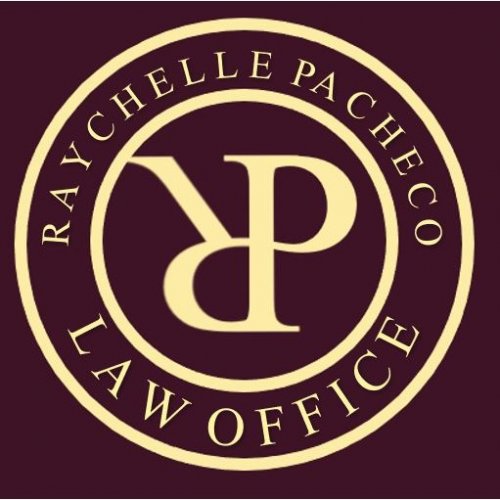Best Will & Testament Lawyers in Philippines
Share your needs with us, get contacted by law firms.
Free. Takes 2 min.
Or refine your search by selecting a city:
List of the best lawyers in Philippines

Dagsaan Monterde Castillo Law and Notary Public (DMC LAW)
15 minutes Free ConsultationPhilippines Will & Testament Legal Questions answered by Lawyers
Browse our 1 legal question about Will & Testament in Philippines and read the lawyer answers, or ask your own questions for free.
- Who will be the legal heir upon death of both parents
- Do son in laws has the right to claim a titled lot of their dead father in laws without authorization while the legitimate children still lives?
-
Lawyer answer by Δικηγορικό Γραφείο Ηλία Τζερεμέ - Ilias Tzeremes Law Office
According the Greek Civil Code, there are two systems of succession, testamentary and intestate succession. Intestate succession includes only in bolld relatives, which means that without a last will legally validated sons in law cannot become heirs after their father...
Read full answer
About Will & Testament Law in Philippines
In the Philippines, a will, also known as a "last will and testament," is a legal document that allows an individual to dictate how their estate will be distributed after death. The laws governing wills in the Philippines aim to ensure that the property of the deceased is distributed according to their wishes while also protecting the rights of lawful heirs. The creation and execution of a will are guided by the Civil Code of the Philippines, which outlines the legal requirements and procedures for a testamentary disposition.
Why You May Need a Lawyer
There are various situations where an individual may require the assistance of a lawyer in the realm of wills and testaments:
- Drafting a Will: Ensuring compliance with legal requirements and that the will accurately reflects your intentions.
- Review and Revision: Legal advice may be needed to review or update a will to accommodate life changes such as marriage, the birth of a child, or divorce.
- Probate Process: Navigating the complex probate process, where the will is validated, and execution is supervised by a court.
- Disputes or Contests: Legal representation may be necessary in case of disputes or contests regarding the validity, interpretation, or execution of a will.
- Estate Planning: Creating a comprehensive estate plan may involve complex legal instruments and strategies that require expert guidance.
Local Laws Overview
The key aspects of local laws relevant to wills and testaments in the Philippines include:
- Testamentary Capacity: The testator must be of sound mind and at least 18 years old when the will is made.
- Forms of Wills: Recognized forms include notarial (or ordinary) wills, which must be witnessed and notarized, and holographic wills, which must be entirely handwritten, signed, and dated by the testator.
- Compulsory Heirs: The law reserves a portion of the estate for compulsory heirs, such as children and spouses, which cannot be freely disposed of by the testator.
- Revocation and Amendment: Wills can be revoked or amended by the testator at any time before death, subject to certain formalities.
- Probate Court: The probate process is necessary to prove the validity of the will and execute its terms under the supervision of a court.
Frequently Asked Questions
What is a will?
A will is a legal document that specifies how a person's assets should be distributed after death.
How do I make a valid will in the Philippines?
To make a valid will, you must meet certain legal requirements including the testator's mental capacity, age, and adherence to the correct form of the will.
What are real and personal property?
Real property refers to immovable properties like land, while personal property is movable, such as money or jewelry.
Who are compulsory heirs?
Compulsory heirs are family members that the law mandates must inherit a portion of an estate, regardless of what the will states.
What happens if there's no will?
If a person dies intestate (without a will), their estate is distributed according to the rules of intestate succession under the Civil Code.
Can a will be contested?
Yes, interested parties can contest a will if they believe it's invalid or does not fulfill the wishes of the deceased.
What's a holographic will?
A holographic will is entirely handwritten, signed, and dated by the testator, making it simpler but often less secure than notarial wills.
What is probate?
Probate is the legal process by which a will is validated and executed by the court, including the payment of debts and distribution of the estate.
Can a will be changed?
Yes, a will can be modified or revoked by the testator at any point before their death, but must adhere to legal procedures.
Is it necessary to notarize a will?
Notarization is necessary for notarial wills, but not required for holographic wills.
Additional Resources
The following are useful resources for those seeking guidance on wills and testaments in the Philippines:
- Integrated Bar of the Philippines (IBP): Can provide legal assistance and refer you to expert lawyers.
- Philippine Law Information Websites: Offer extensive resources about local laws and practices.
- Office of the Register of Wills: Handles the registration and safekeeping of wills and probate matters.
- Family Court and Probates: May provide guidance on the rules of succession and probate proceedings.
Next Steps
If you need legal assistance concerning wills and testaments, consider the following steps:
- Consult a Lawyer: Seek advice from a legal professional specializing in estate planning and succession law.
- Compile Documentation: Gather relevant documents, including any existing drafts of wills, property records, and identification.
- Prepare Questions: Have a list of questions or concerns ready to maximize the efficiency of your legal consultation.
- Review Legal Options: Discuss the possibility of drafting a new will or modifying an existing one with your lawyer.
Taking these steps can help ensure that your estate is managed according to your wishes and that you understand the legal landscape surrounding wills and testaments in the Philippines.
Lawzana helps you find the best lawyers and law firms in Philippines through a curated and pre-screened list of qualified legal professionals. Our platform offers rankings and detailed profiles of attorneys and law firms, allowing you to compare based on practice areas, including Will & Testament, experience, and client feedback.
Each profile includes a description of the firm's areas of practice, client reviews, team members and partners, year of establishment, spoken languages, office locations, contact information, social media presence, and any published articles or resources. Most firms on our platform speak English and are experienced in both local and international legal matters.
Get a quote from top-rated law firms in Philippines — quickly, securely, and without unnecessary hassle.
Disclaimer:
The information provided on this page is for general informational purposes only and does not constitute legal advice. While we strive to ensure the accuracy and relevance of the content, legal information may change over time, and interpretations of the law can vary. You should always consult with a qualified legal professional for advice specific to your situation.
We disclaim all liability for actions taken or not taken based on the content of this page. If you believe any information is incorrect or outdated, please contact us, and we will review and update it where appropriate.
Browse will & testament law firms by city in Philippines
Refine your search by selecting a city.
















